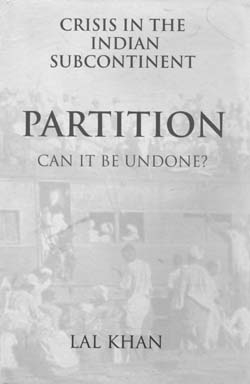Contemporary writings have enormously widened and enriched the field of ‘Partition Studies’, shifting the focus away from the politics of the ‘high table’ to subaltern perspectives, from meta-narratives to the regions partitioned and from attention to the causes of partition to concern about its human consequences. Drawing upon multidisciplinary approaches of history, anthropology, feminist perspectives and literature, partition discourses weave a dense and complex tapestry around a historical event that not only defined our past but continues to shape and threaten present day socio-political relations in South Asia. Or as Sunil Khilnani more cynically puts it—partition ‘in the subcontinent’s public imagination, (is) a surreptitious and always available
October 2007, volume 31, No 10

